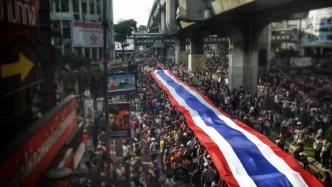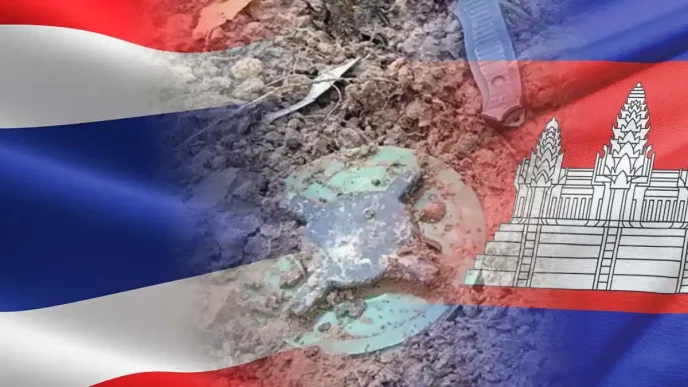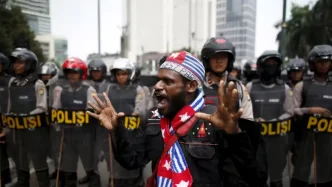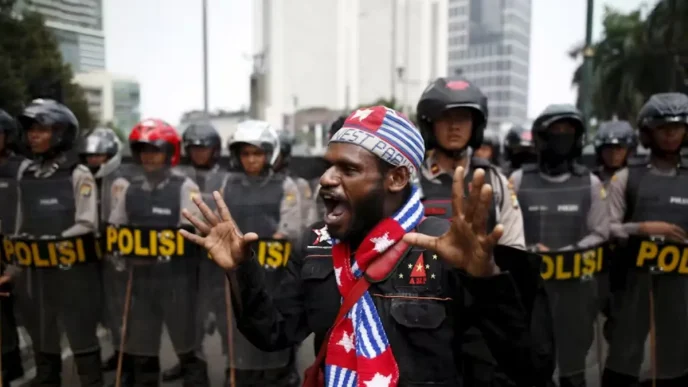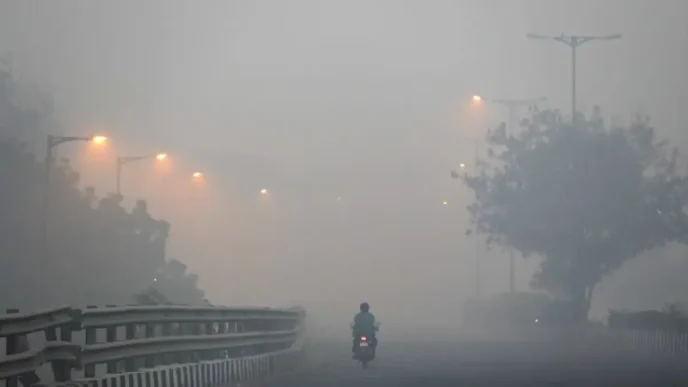In the heart of Bangkok, anti-government protesters gathered at Victory Monument on June 28, 2025, to demand the removal of Thailand’s Prime Minister Paetongtarn Shinawatra from office. The demonstration, one of many in recent months, reflects a deepening frustration among Thai citizens over issues of governance, economic disparity, and democratic erosion. As political divisions widen, Thailand stands at a critical juncture, grappling with both domestic unrest and a global trend toward authoritarianism that threatens to undermine its democratic institutions.
Protests Highlight Deep-Seated Frustration
The rally at Victory Monument underscored a growing public discontent with the current administration. Protesters voiced concerns over economic inequality and a perceived lack of accountability from the government. Their call for Prime Minister Shinawatra’s ouster is emblematic of a broader disillusionment with political leadership, a sentiment echoed in recent academic findings presented at the International Political Science Association (IPSA) 2025 congress held from July 12 to 16.
During the congress, which brought together political scientists from over 100 countries under the theme “Resisting Autocratisation in Polarised Societies” Thailand emerged as a focal point of concern. Research highlighted at the event revealed that the country holds the unfortunate distinction of having the highest percentage of citizens who view income distribution as unjust among all Asian nations studied. This perception has significantly eroded public trust in the government, which, according to experts, has reached historic lows.
Dr. Thawilwadee Bureekul, former Director of the Office of Research and Development at King Prajadhipok’s Institute, emphasized the gravity of the situation at the IPSA congress. “This perception significantly undermines public trust in the government, which has reached historic lows” she stated. Her remarks, grounded in joint regional research and surveys, point to a crisis of confidence in Thailand’s leadership, with trust in key institutions like the Prime Minister’s office and the Senate declining steadily over the past two decades.
Erosion of Political Efficacy and Trust
Despite a rise in political awareness among Thai citizens, their belief in their ability to influence government decisions—a concept known as political efficacy—has markedly declined. Survey data spanning 20 years, as discussed at the IPSA congress, show a consistent drop in trust toward political institutions. This erosion of faith is not unique to Thailand but mirrors a global trend where democratic systems are increasingly questioned for failing to deliver on promises of economic security, political participation, and social justice.
Dr. Thawilwadee further noted that political and ideological divisions are deepening worldwide, with opposing factions no longer viewing each other as fellow citizens but as existential threats. “In many nations, opposing factions no longer see each other as fellow citizens, but as existential threats” she said during her presentation on July 15, 2025. This extreme polarization, evident among both elites and the general public, now characterizes societies across the Global North and South, with profound implications for democracy and international order.
In Thailand, this polarization is palpable. The protests in Bangkok are not merely a reaction to specific policies but a manifestation of a broader disillusionment with the democratic process itself. As public support for democracy wanes, frustration and fear have created fertile ground for authoritarian-leaning policies and leaders who promise stability at the cost of civil liberties.
Global Context: The Rise of Authoritarianism
The IPSA 2025 congress shed light on the global rise of authoritarian tendencies, a phenomenon affecting even countries with historically stable democratic frameworks. Elected leaders in several democracies are beginning to undermine established norms, curtail minority rights, and reshape political platforms to suit personal agendas. At the same time, public disillusionment with democracy has fueled support for authoritarian leaders who exploit global crises—such as war, migration, and climate change—to justify restrictions on democratic norms.
In this context, Thailand’s struggles are part of a larger narrative. The conference discussions highlighted how authoritarian-leaning leaders often invoke national security, austerity measures, or controlled migration policies to legitimize curbs on civil liberties. Digital platforms have amplified these efforts, spreading misinformation and post-truth politics that further erode trust in democratic systems.
Yet, there is hope. Dr. Thawilwadee pointed out that some countries have successfully resisted the authoritarian tide through timely interventions. A strong opposition, an independent judiciary, and a robust civil society have proven essential in upholding democratic values. She advocated for international collaboration to counter authoritarian trends, suggesting that resilient democracies can support others in the region by strengthening partnerships and institutions. “This year’s IPSA congress aims to draw the global political science community’s attention to the urgent challenge of resisting authoritarianism in deeply polarised societies” she declared.
Thailand’s Path Forward: Challenges and Opportunities
For Thailand, the path forward is fraught with challenges. The protests at Victory Monument are a stark reminder of the public’s dissatisfaction with the status quo. Economic inequality, a key driver of unrest, remains a persistent issue. The perception of unjust income distribution, as highlighted in regional research, continues to undermine confidence in the government’s ability to address systemic issues. Without meaningful reforms, the risk of further polarization and potential authoritarian drift looms large.
Moreover, the decline in political efficacy among Thai citizens poses a significant barrier to democratic renewal. When people no longer believe their voices matter, they are less likely to engage in the political process, creating a vicious cycle of disillusionment and disengagement. Addressing this requires not only policy changes but also a concerted effort to rebuild trust in institutions through transparency, accountability, and inclusive governance.
On the international stage, Thailand’s challenges reflect broader concerns about the state of democracy worldwide. The IPSA congress called for proposals and constructive exchanges to explore the complex interplay between authoritarianism and issues like human rights, inequality, and climate politics. With nearly half of the participants at the 2025 congress being women, the event also underscored the importance of diverse perspectives in tackling these global challenges.
Thailand has the opportunity to draw on these international insights and partnerships to bolster its democratic resilience. Civil society, often a bulwark against authoritarianism, must be empowered to hold leaders accountable. An independent judiciary can serve as a check on executive overreach, while opposition voices must be allowed to operate without fear of reprisal. These elements, as highlighted at the IPSA congress, are critical to resisting the global trend toward autocratization.
A Critical Moment for Democracy
As Thailand navigates this turbulent period, the anti-government protests in Bangkok serve as both a warning and a call to action. The grievances aired at Victory Monument are not isolated but part of a deeper crisis of trust and representation that threatens the country’s democratic fabric. At the same time, the global insights from the IPSA 2025 congress offer a roadmap for resistance—through strong institutions, civil society engagement, and international cooperation.
The question remains whether Thailand’s leaders and citizens can bridge the divides that polarize their society. As protests continue and public frustration mounts, the stakes could not be higher. The coming months will test the resilience of Thailand’s democracy and its ability to withstand the dual pressures of domestic discontent and global authoritarian trends.

